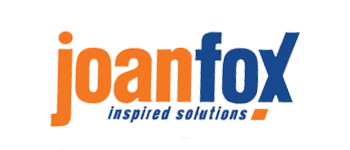Executive Coaching
Trusted partnerships are the key to an effective coaching experience. When the guide and guidance are trusted, positive change is a natural outcome. Over the years, we have served many leaders including CEO’s and others in the C-Suite, by delivering a targeted, impactful, respectful experience. Companies who value professional development, view guidance and support from a coach as a critical element of optimal performance.
Our Process is an Accelerated Path to Change
Step One: Use DATA to Inform the Process
Driving the coaching process using goals alone can be a productive experience. However, with goals and data, results soar. Why? With the insight of others, different perspectives can specifically target the coaching experience. Interviews can be quite helpful. However, goals, interviews, and data from a 360 instrument, provide an accelerated path to change.
Step Two: Develop Coaching Plan
Using insight from stakeholders and the 360 assessment, a coaching plan with targeted goals is developed and confirmed.
Step Three: Deploy the Experience
Coaching can be delivered virtually or in-person depending on client choice. The in-person experience can offer additional opportunities to observe meetings, presentations, or other candidate interactions.
Think for a Moment: What IF?
What if you have a leader in your organization who brings value to you, your team, and your organization. What if you and multiple others have given feedback to this leader regarding some challenges? What if that leader continues to ignore the feedback? What do you do?
Answer: You use DATA—it is difficult to ignore data. Data gives a coach leverage especially when the coaching candidate ignores feedback.
363 Assessment
The 363 assessment we use is produced by Wiley and is a game changer as a coaching tool. The report is a 25–30-page document with thorough analysis of the feedback provided by the contributors. Contributors are segmented into 4 categories-manager, direct reports, peers, and others. The third digit of “363” stands for the top three leadership strengths and the top three leadership requests of the coaching candidate based on algorithms the tool employs.
The 363 assessment and the coaching process are a dynamic duo. This combination yields results.
Click here to see a sample copy of the Wiley 363 Assessment.
Fit to Lead
“Fit to Lead” is a series of workshops focused on the essentials of leadership. Effective managers are not always great leaders or leaders at all. Leadership, however, can be learned. The “Fit to Lead” series is meant to focus on fundamentals. It is an interactive experience, more so when the workshops are held in-person. If delivered virtually, breakout rooms are used to provide community among the participants.
The workshop series is easily customizable and targeted to the needs/level of the participants. Topics include fundamentals such as:
- The Real Differences between Managers and Leaders
- An Exploration & Analysis of Historical Leaders
- Emotional Intelligence
- Creating an Engaged Culture
- Building or Re-building Your Team
- The Role of Ownership & Accountability
- Giving & Receiving Feedback
The “Everyday Leadership” Keynote
Leadership is remarkable. It is written about and spoken about more than any other single subject. It is held out as a characteristic that is nearly sacred and spoken about with a sense of adoration and awe.
Indeed, we not only desire but need leadership. Historians tout individual leaders as legends who won wars, mastered space, and made decisions which saved entire populations. Few stepped up; many followed.
So, we see the pictures, read the stories, and tell the tales of the significant few that have moved among us and achieved significance and we call them leaders. The CEO’s, the generals, the Kings and Queens, the Presidents, the scientists, the physicians, and the architects (please forgive the many omissions) who shaped our present-day state are dear to us.
We believe they had qualities that you and I may never possess or at least must work at diligently. The goal of being a great leader seems to be more aspirational than real. We believe others were and are better equipped to influence because of their intelligence, natural talents or achieved position.
But I feel we got it wrong. Leadership is a choice. It is not elected or bestowed. It is lived, every day. This session enlightens attendees with the five requirements for Everyday Leadership. No matter where you are in the organization, you can lead.
In this session you will:
- be inspired to make some critical choices
- learn how to bring your “best self” to work everyday
- understand the power of being a “possibilitarian”
- gain insight into your personal impact
- leave knowing you can lead from any seat





